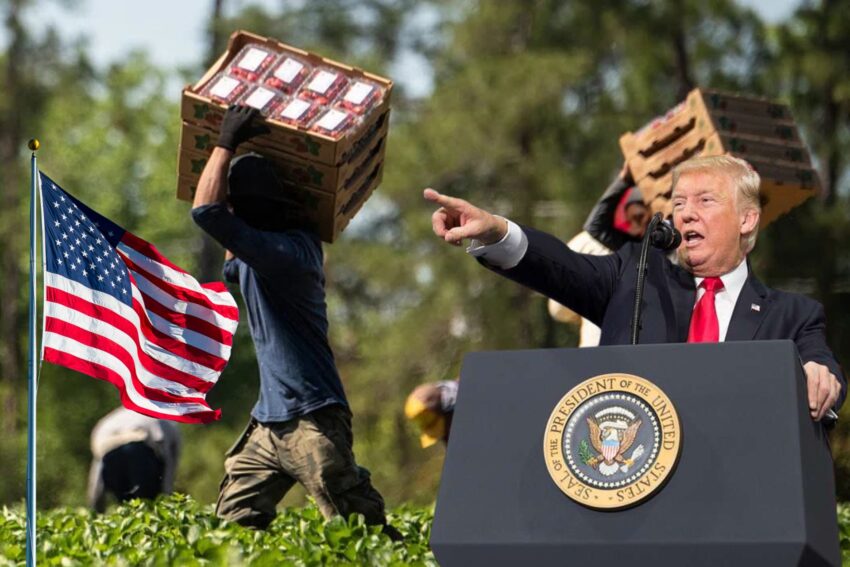We’ve consistently covered the use of illegal immigrant labor by big agribusinesses several times here, but it’s a topic that just keeps coming up. A recent article from Grist discussing Donald Trump’s proposed mass deportation and its potential impact on America’s food supply has stirred significant debate, particularly around the implications for labor and food prices.
@Jim_Jordanhttps://t.co/NAlywK9bxu
Trump's proposed mass deportations could 'decimate' the US food supply— Rhonda Harbison (@rhonda_harbison) October 17, 2024
If enforcing the laws of our country and regaining control over our borders means the food supply will collapse, we need to seriously re-evaluate our system of agriculture. However, is it really true that following laws would collapse American agriculture?
The article, by suggesting that Trump’s deportation policies could “decimate” the U.S. food supply, veers into fear-mongering rather than presenting a balanced view. It assumes an absolute collapse of agricultural labor without considering alternative solutions or the adaptability of the market. This narrative exaggerates the scenario to push an agenda rather than inform.
The argument that mass deportation would dramatically affect food prices by removing labor overlooks the economic principle of labor supply and demand. Currently, the reliance on what’s often illegal labor suppresses wages, making it economically unattractive for American citizens to engage in farm work. This system not only undercuts American labor and family farms but also creates an economic dependency on illegal immigration, which is neither sustainable nor fair.
Advances in technology, like autonomous farming systems, are already reducing the need for manual labor in agriculture. While not fully implemented, these technologies represent a future where food production is less labor-intensive. Additionally, legislative interventions could incentivize legal labor through provisions in the new Farm Bill, offering subsidies or other benefits to farms hiring legally, thereby normalizing wages and conditions.
The article fails to acknowledge the existing legal avenues for agricultural workers, like the H-2A visa program, which could be expanded or reformed to meet labor needs without resorting to illegal hiring practices, which inevitably causes human trafficking. These programs can screen for criminal backgrounds, ensuring safety and security, which is a concern often overlooked when discussing open-border policies.
Most Americans might indeed prefer slightly higher food prices if it meant enhanced community safety and less dependence on mass illegal immigration. This isn’t just about economic convenience but national security. The argument that we must accept uncontrolled immigration to keep food prices low essentially amounts to economic blackmail, suggesting that if we enforced immigration laws, then we would be brought to our knees, starving.
Since he didn’t answer the question: undocumented farmworkers make up nearly 50% of the farm labor work force. Trump’s mass deportation plans would not only cost billions, it will quite literally decimate the food supply chain and our economy. https://t.co/vQhvuEIYeN
— Paola Ramos (@paoramos) October 17, 2024
Corporations knowingly hiring undocumented workers should face penalties for breaking labor laws, yet historically, the government has been lenient and, in many cases, enabled the practice. This leniency contributes to the problem, encouraging a continuous cycle of illegal hiring. The solution lies not just in deportation but in enforcing existing laws and creating a framework where legal, fair employment is the norm.
The article’s portrayal of Trump’s deportation plan as a direct threat to the food supply might be seen as an attempt to leverage economic fear against political action. However, a more balanced view would consider the long-term benefits of legal, secure labor practices over the short-term convenience of undocumented workers. The debate isn’t just about food prices but about economic justice, national security, and the rule of law. By advocating for a system that relies less on illegal labor, we’re not only ensuring food security but also upholding the principles of fairness and legality in labor practices.


